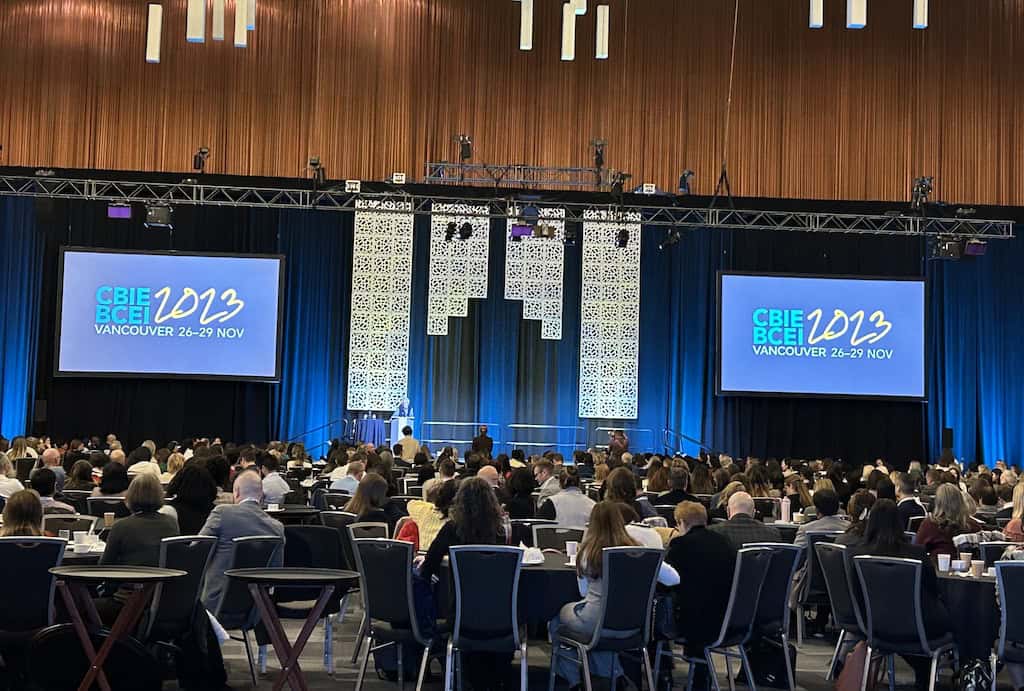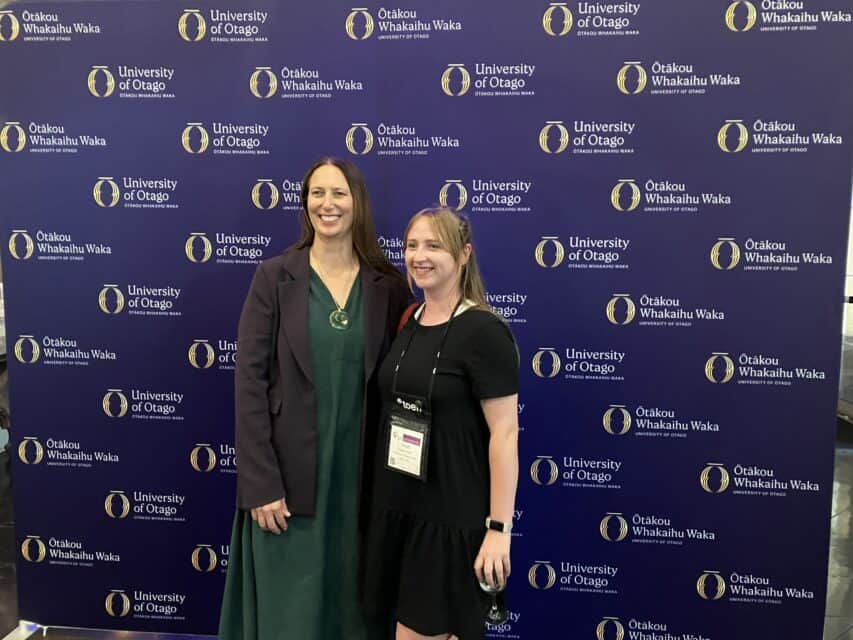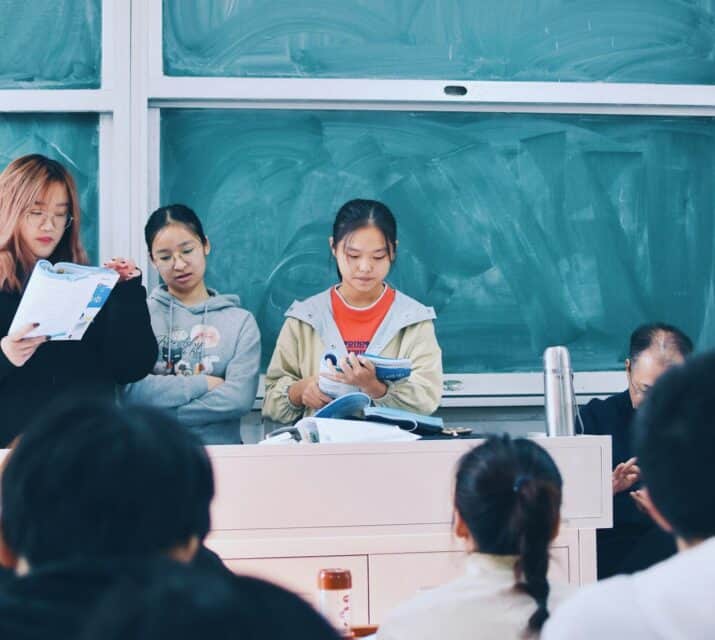The CBIE annual conference in Vancouver began with a sobering message by scientist and environmental activist David Suzuki who reminded delegates about the hourglass running out in the climate crisis.
“The way we see the world shapes the way we treat the world,” warned Suzuki as international educators assembled to consider the future of the sector and, indeed, of the planet itself.
Climate justice group Alethea Global founder and managing director CJ Tremblay noted the “hard truths” shared by Suzuki. “Suzuki didn’t pull any punches in his opening address,” said Tremblay. “We are at the 59th minute in this climate crisis and the system needs to change.”
She added that while the truth may be uncomfortable, “as leaders in the system of international education, we have the power for transformative change”.
According to Tremblay, during conversations had during the week, “it was apparent… that the sector is ready to take action.”
However, the extent to which the sector is ready for the impact of AI, remains to be seen. Steve Mulligan, chief commercial officer at StudyPortals North America, said he believes all will “need to embrace that AI is going to influence the way we do things in the future”.
After numerous sessions that focused on how AI is changing the face of the sector, Mulligan told The PIE, “What is top of mind for most people is the role AI will play within their own institutions. From recruiting activities to academic integrity, it’s obvious things will change.”
As such, the panel dialogue about AI in IE often moved from strategies for best practice and efficiency, to ethics and security.
“From recruiting activities to academic integrity, it’s obvious things will change”
A report on the state of Canada Immigration, IRCC, served as the start of Day 2, with CBIE president Larissa Bezo asking the hard questions concerning application speed, communications and transparency. And while turnaround time for application processing has improved, there is still an overwhelming number of applications to be processed in all categories, asserted IRCC representatives.
Bezo also participated in a panel session on recalibrating institutional strategies for India and highlighted survey data that revealed a call for increased communication and transparency. In fact, those topics were ranked as highest in priority in what students believe universities can be doing better, especially amidst political turmoil.
Bezo again took to the stage to present the CBIE Excellence Awards, honouring innovative initiatives that have helped move the work forward this year in equity, internationalisation and collaboration.
Along with Isaac Garcia-Sitton, she presented The Panorama Award to Maria Rodriguez Medina from The Western Heads East Team from Western University.
“Western Heads East is a collaboration between Western University staff, students, faculty and African partners using probiotic food and social enterprise to contribute to health and sustainable development. Established in 2002 to help address HIV/AIDS, the program has provided more than 160 students with meaningful global learning internships,” reported CBIE.
A hotly debated topic at the conference concerned the regulation of agents. During a standing room only session moderated by Edified partner Oliver Fortescue, he asked panellists whether agents should be subject to increased regulations by the institutions they serve.
And while there was rationale given for both sides of the argument, IDP Connect Canada’s Luna Das Bangia called for a healthy balance, suggesting that while procedures to ensure ethics needs to be in place for agents, institutions also need to have a hard look at their own processes as well to promote balance and equity, and to build trusted partnerships that place students first.
The impact of wars resulting in forcibly displaced students and scholars was addressed in numerous sessions over the three days in Vancouver. Ukrainian Catholic University Halyna-Protsyk spoke about the challenges for Ukrainian HEIs after emerging from the pandemic and immediately being thrust into the full-scale war of Russia.
Protsyk stated that priorities for 2024 for Ukrainian HEIs include the modernisation of systems, increased flexibilities and freedoms in academic choice, and improved internationalisation.
Despite the “tough questions,” “hard truths,” and debates that occurred during the event, stakeholders largely agreed that the dialogue promoted their understanding of the topics through diverse perspectives and fostered a sense of unity.
ISEP president and CEO John Lucas told The PIE about his appreciation for the collegiality and collaboration that was evident during the week. “There is a real sense of community in the Canadian international education space. People are generous with their time, their ideas and their feedback.”
Mariam Raza, manager of global initiatives and partner development at Conestoga College agrees, telling The PIE, “Learning from my Canadian (and global) peers and seeing the amazing work that is being done in international education in Canada is a kind of ‘battery recharge’ to pump us up as we return home and plan the next year of projects and initiatives.”
Raza added that the conference served as a reminder of “the greater good that we are all part of, and a clear indicator of our dedication and love for what we do”.
Next year’s CBIE conference will take place in Ottawa.










